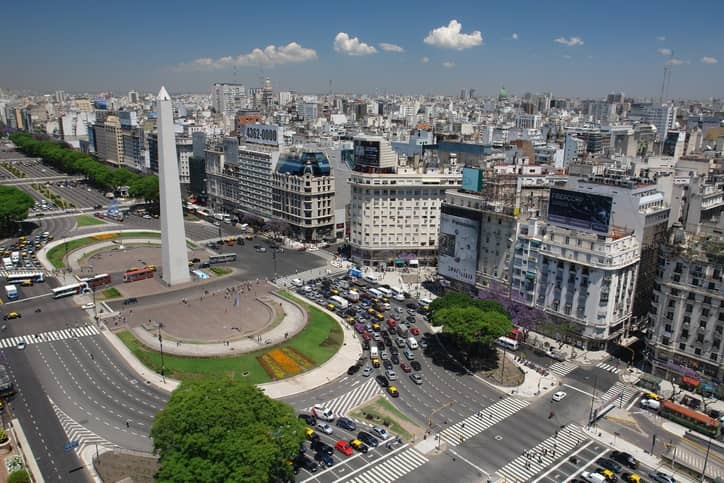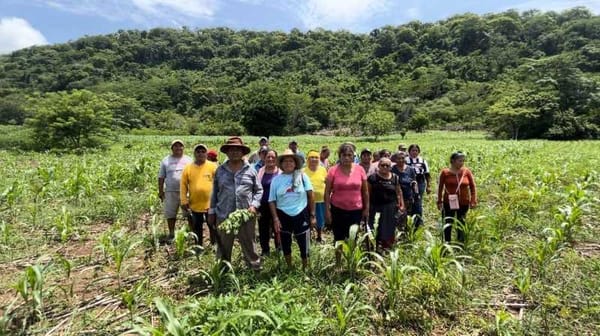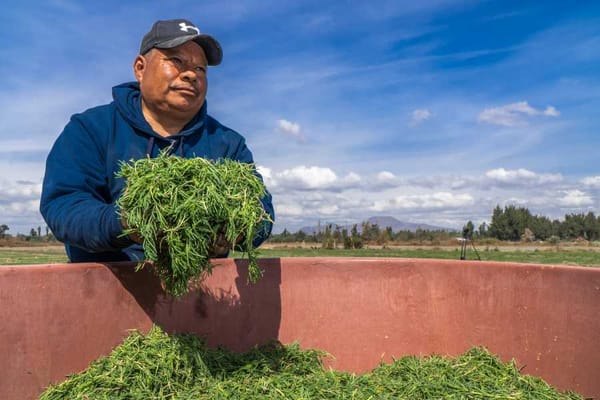Latin American fintech markets regulation and sandboxes
Mexico, Brazil, and Colombia are the three leading nations in the region with the largest number of consolidated fintech companies.

Mexico, Brazil, and Colombia are the three leading nations in the region with the largest number of consolidated fintech companies. One of the challenges that this ecosystem will have to face in 2020 will be regulation, especially in the Latin American region where Fintechs have been surprised by their early development.
The financial technology business, commonly known as Fintech, has been growing rapidly in Latin America. This is largely due to the openness that has been given to the entrepreneurial ecosystem in the region. Although some countries, such as Mexico, have achieved laws that regulate this area, the legal framework still needs to be strengthened to guarantee not only the correct operation of this market but also fair competition among companies and the true benefit of its users.
According to the Global Fintech Index City, a ranking presented annually by Findexable, Mexico, Brazil, and Colombia are the three leading nations in the region with the largest number of consolidated Fintechs, either maturing or ready to scale up their operations. The case of Mexico is very particular. A little more than 10 years ago, the opening to the entrepreneurial ecosystem was evident, and this certainly generated confidence among investors because it was a sign that there was an optimal environment to start betting and creating financial technology.
In 2018, the first regulations were worked on to regulate the financial digital ecosystem and this year this was reflected in the creation and approval of the so-called Fintech Law. The fact that Mexico is positioned above countries like Brazil is no coincidence; it is a sign that all those who belong to this niche are working in favor of generating ideal conditions for investment, modernization, and fair competition between markets.
The path that has been taken to have fintech legislation in Mexico, to be applied from 2020, focused on the promotion, consolidation, regulation, and national mapping of Fintech, is seen as a success. However, the challenge will continue for Latin America, so that the region has a regulatory framework that facilitates and promotes good practices in financial technology.
From about five years to date, the digital economy has found the conditions for investment and development in Latin America. Without neglecting what has been achieved so far, the focus should be more on the regulatory side and show the world that the region is committed to modernity.

Fintech regulation
A fintech scan of the Latin American region reveals that the six countries that concentrate the Fintech are Brazil (33%), Mexico (23%), Colombia (13%), Argentina (10%), Chile (7%), and Peru (5%). Of these six, only Mexico has a regulation for crowdfunding platforms, cryptocurrencies, and payment transactions. The rest of the nations are in the process of regulation or have only regulated some aspects.
Fintech regulation in Chile
In mid-February, the CMF released its white paper, which establishes the basic guidelines for regulating crowdfunding and related services in the country. Although this is a step forward for the sector, the neighboring countries that concentrate the Fintech have already taken this step one or more years ago.
Sierra believes that the backwardness of Chile in the matter is not necessarily a bad thing, because if the country rapidly capitalizes on the regulatory weaknesses and the implementation that there was in other nations, one can still dream of seeing Chile as the future financial center of the region. But, he adds that it is necessary to establish a regulation soon on the matter since "talking about a financial ecosystem of the 21st century without Fintech is difficult," he says. However, the Ministry of Finance said that this year is not in their plans to see the issue until the first half of 2020 since the priority for 2019 is Tax Reform.
Fintech regulation in Mexico
Following the example of leaders in Fintech regulation at the global level, England and Singapore, Mexico opted to take the regional leadership, and a year ago it passed its FinTech law, where it supervises collective financing companies, electronic payments, and virtual assets. Thus, Mexicans lead the region with fintech law. "The regulation of Mexico is integral, it is very important to highlight it because there are countries that say they have a fintech law when only crowdfunding was regulated", highlights the executive director of FinteChile.
The legislation of the Mexican country indicates the requirements that each Financial Technology Institution (ITF) must follow to request authorization to operate, tighten the rules for the operation of electronic payment funds, as well as a series of measures to prevent money laundering. money and financing of terrorism by digital financial platforms. Cumplo, the largest crowdfunding platform in Chile, operates its business in Chile and Mexico, two very different regulatory scenarios. "When there are clarity and certainty, a company advances much faster," says Nicolás Shea, the partner at Cumplo.
Fintech regulation in Colombia
The financial regulator already supervises Fintech in Colombia and has created specialized companies in electronic deposits and payments (SEDPEs), through which these fintechs can operate. On the other hand, crowdfunding is regulated and is recognized as an activity of the stock market that can be developed by all those entities supervised by the Financial Superintendence of Colombia (SFC). In addition, the government authorizes financial institutions to hold shares or quotas in national or international companies, whose exclusive purpose is to develop and/or apply innovations and technologies related to the development of the corporate purpose of financial investment entities.

Fintech regulation in Argentina
A year ago, Argentina approved the regulations that regulate crowdfunding companies through the creation of the Collective Funding Platform (PFC), linked to a company previously authorized and registered in the Securities Commission of the country (CMV ). Today, the Argentina Fintech Chamber (CAF) is working with the Argentine Central Bank, through four working groups: media and payment infrastructures, technology and transversal systems, alternative savings channels, and blockchain. "There is a real and very favorable predisposition on the part of the authorities to the development of FinTech services," says CAF president Juan Pablo Bruzzo.
Fintech regulation in Peru
The Peruvian scenario is slightly more advanced than the Chilean one but still steps away from approving crowdfunding. In October of last year, the Superintendency of Market Values (SVM) of the country presented the Executive with a bill that seeks to regulate crowdfunding platforms. "We aim for this semester to have at least the bill introduced in the Congress," says the president of the Fintech Peru Association, Óscar Salas. And he adds that although Chile and Peru are at similar levels, everything will depend on who is delayed less in the processing of the project. Currently, the guild conducts working groups with the regulator around currency exchange platforms and means of payment.
Fintech regulation in Brazil
The Brazilian government regulates Direct Credit Companies (SCD) that operate as financial institutions whose purpose is to carry out loan operations, financing and acquisition of credit rights always using their capital, and to the Inter-Person Loan Companies (SEP), financial entities which are aimed at intermediation, financing, and loans between people, better known as Peer to Peer Lending. Thus, the country advances in open banking regulation.
The legislation establishes that SCDs and SEPs can provide services such as the issuance of electronic currency and the collection of credits. Both figures must operate exclusively on electronic platforms, be constituted as corporations, in addition to having permanently paid-in capital and a minimum net worth. Unlike Mexico, Brazil has not regulated or recognized cryptocurrencies as virtual assets.
Sandboxes
It is one of the topics most heard in the corridors of regulators and supervisors and in the offices of large and small firms: how to integrate new players, such as startups and financial technology firms, with traditional firms and move together in collaboration and under a regulatory umbrella. There is no single answer, not in Europe, Asia, or Latin America. But many countries already recognize that it is a necessity and have begun testing processes to learn about the new technologies and services in which they are working. This can be done through sandboxes.
Sandbox is a space set up by a country's regulator and supervisor to create an environment that covers companies (whether startups or traditional financial firms) working on the innovation of a new product or service that does not currently have a specific regulation.
It is intended that these sandboxes participate in new and disruptive ideas that if they come to market can be a real benefit to consumers. Companies are allowed to experiment with customers in a very specific period (between six and 12 months). Subsequently, the supervisor and regulator assess the risks and decide to create a specific regulation or modify the existing one to accommodate the new product. The largest economies in Latin America have not been left behind, and despite differences in approach and measures taken, they do not hide the fact that the emergence of fintech has changed the banking and financial scenario.
Mexico
Since March 9, 2018, Mexico is one of the first countries in the world, along with the United Kingdom, which have a specific regulation on the performance of 'fintech', the Law Regulating Financial Technology Institutions. The bill focuses mainly on collective activities ('crowdfunding'), electronic payment platforms, and the provision of financial services through technological means and cryptocurrencies.
Colombia
It is the second country, after Mexico, with the most advanced regulatory process. On May 7, 2018, the Superintendency of Finance of Colombia announced the creation of InnovasFC, a study space of Fintech companies that includes three modalities for the development of new companies and their supervision: hub, sandbox, and regtech. The hub is the first point of contact between the Superintendency and fintech companies interested in participating in the sandbox. It is the supervising team that decides if the project meets the eligibility requirements to be tested in the sandbox.
The sandbox serves as a framework through which the Superintendency facilitates product innovation and business models. It serves both supervised and unmonitored companies that will test their services. The third mechanism, 'regtech', aims to take advantage of the advances that have been made in the sandbox for the Superintendency to evaluate possible regulation changes.
Argentina
The country has 116 registered fintech companies and since 2016 the Central Bank of Argentina (BCRA) has created a space for work and dialogue between fintech, banks, and other financial institutions. This space, called the Financial Innovation Roundtable, works in three areas:
Means and Payment Infrastructure (MIP)
Transversal Technologies and Systems (TST)
Alternative Credit and Savings Channels (CALs)
The activity promoted by the BCRA is not a sandbox, but rather a 'device facilitating innovation'. Since 2017, BCRA has also been running an accelerator called the Financial Innovation Hackathon.
Brazil
It is the country with more financial technology initiatives in the region and grew more than 200% between 2016 and 2018, according to data from the Comissão de Valores Mobiliarios (CVM), but does not yet have a regulation or firm work team. There is an intersectoral discussion forum that brings together the Brazilian Development Association (ABDE), the Inter-American Development Bank (IDB), and the CVM in which enterprises in the fintech sector, green finance, and financial instruments, and impact investments participate.




